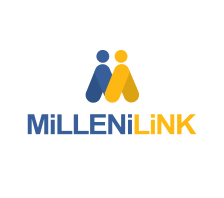Building a Balanced Team and Developing a Blameless Culture
Build the team you want and need
Are you striving to build a healthy company culture that fosters team cohesion and nurtures talent? We spoke to Kranthi Ravi, a senior DevOps leader with over 20 years’ IT industry experience (currently working for global fintech leader, Broadridge Financial Solutions). An outcomes focused servant leader with a unique approach to management and team building, he offers valuable insights into the complex art of cultivating an empowering and balanced company culture.
You refer to an early career experience with Capital One as your “big break”. What did you learn there and why was it such a career defining experience?
What stood out about their practices was how they empowered each individual within a team, recognizing and harnessing the unique skillsets everyone brought to the table. It was at Capital One that I really understood how crucial developer empowerment is to any project. It's all about creating an environment where developers can keep their focus on code, using pipelines to smoothly transition into production without being overly reliant on a chain of people.But it was the blameless culture that really resonated with me. The idea that when something goes wrong, it's not about pointing fingers but rather asking, “what did you learn?”. I also loved the “train the trainer” concept, which was a big part of the company culture. This is where we learned new skills and concepts not just for our own benefit, but with the intention to pass that knowledge onto others. I soaked up these experiences and philosophies and have carried them with me throughout my career.
Does that approach align with what organizations are aiming for in an Agile environment? Does an organization need to embrace this philosophy from a cultural standpoint in order to execute Agile methodology at a high level?
Agile isn't just about following a specific set of practices to the letter – every organization has to adapt and tailor Agile methodologies to their own needs and priorities. The most critical element is ensuring that the customer always takes center stage. The Agile model leans heavily on continuous testing and automation to keep customer satisfaction at the forefront.Shifting into this perspective requires more than just organizational changes. It’s important to hold design thinking exercises, with all new associates going through onboarding sessions where they're introduced to this mindset. We don't just want our project managers thinking about it, our entire team, including developers, test automation engineers, scrum masters, etc., needs to understand that the customer comes first. Seeing this customer-first mindset thrive across different teams is something I find truly impressive and, honestly, quite rare.
How would you describe your own leadership philosophy?
My leadership philosophy veers away from traditional bureaucratic approaches, where things operate on an “I make decisions, you follow” basis. I find value in the principles prescribed by DevOps, particularly the emphasis on a blameless culture. When issues arise, the focus should be on fact-finding, improvement, and learning from the situation. As a leader, it's my responsibility to set this tone and ensure that blame isn't the go-to reaction. I want to cultivate an environment where people feel free to ask questions. I often lead by example in this respect, asking “silly” questions myself to show that it's okay to do so. It's important to create a space where everyone feels comfortable, irrespective of their title. This relaxed atmosphere is where innovation thrives.Everyone is unique and brings something different to the table. People aren’t just replaceable resources, they should be treated as investments, and investments need nurturing. Even in slower economic times, it's crucial to invest in people, train them, and take care of them. Work is performed by people, not technology. While technology is a tool we use, it's the well-trained, well-cared-for individuals who make sure our systems run smoothly and our customers are satisfied. This “people-first” mindset should be at the core of any leadership philosophy.
Tech industry organizations are facing a lot of pressure these days to do more, with less. How can companies effectively balance the need for internal training and development (a long-term strategy that doesn't yield immediate results) amidst tight budgets, escalating business demands, and the pressure to accelerate their digital strategy by hiring more experienced individuals?
It’s crucial to see the existing team as a valuable asset. People who've been with the company for a long time possess a wealth of knowledge and a deep understanding of the business, and investing in their development motivates them, builds trust, and makes them feel comfortable, cared for, and appreciated. It's a win-win situation: they grow professionally, and their growth benefits the company.But while retaining and nurturing knowledge within your teams is critical, at the same time it's essential to bring fresh perspectives and diversity into the organization. Finding that right balance means a blend of investing in existing team members and bringing in new talent. What organizations sometimes fail to see, is that you can't just bring in new people and expect instant results. There needs to be a strategy for cross-training and continuous learning. Making education an integral part of your company culture ensures that everyone can contribute to their fullest potential, creating a truly agile, future-facing organization.
Can you recommend any valuable DevOps groups, associations, or organizations, particularly for those looking to broaden their knowledge, transition careers, or just starting out in the field?
Absolutely, the DevOps and Agile Skills Association (DASA) immediately comes to mind. They're based in Europe and offer a range of training programs covering DevOps leadership, culture, cloud technology, and business strategies. Beyond that, they host an annual DevOps awards event in various categories. I've had the pleasure of being part of this group as a judge, which involves volunteering to review the submissions and providing collective input for the award decisions.Furthermore, DASA offers comprehensive coursework on DevOps. I've personally been involved in reviewing the course material and providing feedback. It's a very engaging and enriching experience, so I'd definitely recommend people, whether they're just starting out, transitioning, or looking to expand their knowledge, to explore what DASA has to offer.
Leveraging your relationship with a recruitment agency can help you build a stronger team and achieve better business outcomes. If you’re in Canada or the US and looking for a specialized tech industry recruiting partner, we’d love to hear from you. Get in touch or send an email to info@millenilink.ca to request a consultation.


